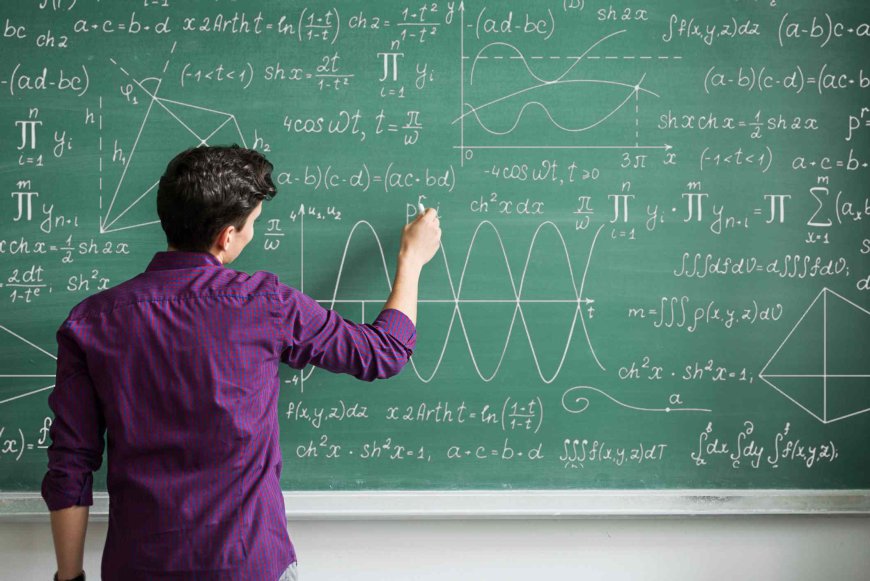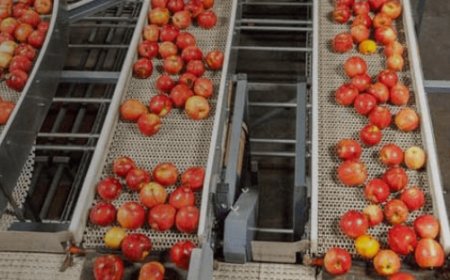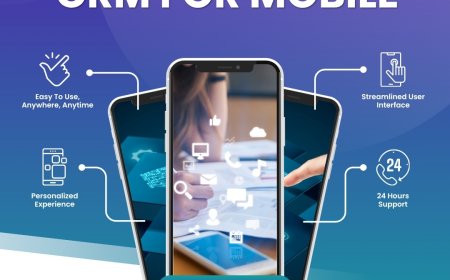What Real-World Applications Make Math Relevant to Every Student?
Mathematics is also a basic life skill which aids a student to develop into a critical thinker, a proficient planner, and an improved decision maker.

Students tend to think of mathematics as a book, formula, and abstraction-based discipline. The question that may come to mind is, when will I apply this in life? The fact is that math is not only a subject, it is an international language which makes decisions, solves and thinks logically in practically all realms of life. Math has innumerable real-life applications, as it can be seen in the fields of finance management, data trends analysis, and so on, which makes it significant to all students.
This article looks into the possible applications of math in real life and how students can gain confidence in math by learning how it can be used in real life.
Why Learning Math Matters in Everyday Life
Mathematics is also a basic life skill that aids a student to develop into a critical thinker, a proficient planner and an improved decision maker. Math is an essential part whether you are counting your monthly expenses, planning a trip by car or computing nutritional values required in a healthy diet. Further, knowledge of how math is used makes students motivated, bearing in mind that they can practically view the benefits of math.
The Role of Math in Financial Planning
Budgeting and Money Management
Financial management is one of the most vital functions of math. Simple arithmetic and percentages are used to teach students how to work out income, to keep track of expenses and how to plan how to save. Knowing how to compare interest rates, evaluate discounts, or determine loan repayments equips them with math life skills necessary for adult life.
An example is that when you want to purchase a laptop under a monthly instalment payment, it is important to know about simple interest and compound interest so you can opt to pay the most economical package. The mathematical skills make the students ready to make sound financial choices in the future.
Practical Math in Career Development
Math Skills for Different Professions
Numerous professions have Math as their basis. Geometric and trigonometric tools allow engineers to design the structure of a building, architects to compute the dimensions of a building, and data analysts to work on trends in terms of statistics. Even professions like nursing, the culinary arts and fashion design involve at minimum the mathematical ability to measure doses, proportions or measurements of fabric.
Students often seek extra academic help to strengthen their math foundation. Services that allow learners to take my class for me or get guided tutoring have grown popular because they help struggling students bridge the gap between theory and practical application. When students understand how math connects to future career opportunities, they become more motivated to learn.
How Math Enhances Problem-Solving Skills
Logical Thinking in Real Life
Mathematics sharpens analytical and logical reasoning. Daily activities such as deciding the fastest route to school, estimating cooking time for meals, or even evaluating the fairness of a deal at a local store involve math-based reasoning.
Furthermore, online resources make learning easier and more convenient. Students who opt to take my math class online often report improved problem-solving skills because interactive courses present real-life scenarios, encouraging them to apply logic rather than just memorize formulas.
Technology and Math: A Perfect Combination
Math in Digital Innovation
The number of mathematical concepts is extremely important in the digital world. The world of technology would be incomplete without math, from discovering the potential of smartphone applications to video games and even artificial intelligence. Math formulas are involved in algorithms, coding and encryption.
Students who take an interest in technology gain a lot by knowing the use of statistics, probability, and algebra. As an example, social media platforms are using mathematical equations to display relevant posts, and e-commerce Internet sites use probability and data analysis to make product recommendations.
Math in Daily Household Activities
Practical Math Use in Routine Life
Math isnt just for careers or academicsit is deeply embedded in daily life. Simple tasks like adjusting recipes, calculating travel distances, measuring furniture for a room, or determining electricity usage bills all involve math. This practical math use proves that students dont need to wait until adulthood to experience its benefits; they are already applying it unknowingly every day.
For example, when baking a cake, students calculate ingredient proportions, convert grams into cups, and set oven timers. Such real-life examples make math more engaging and relatable.
Sports, Fitness, and Math
Measurements and Statistics in Sports
Math is significant to sports analytics and fitness regimes. Statistics guide players and coaches to analyze the game, record their scores, and refine winning strategies. Fitness junkies use math to calculate the intake of calories, speed and to remain healthy.
It is important to understand averages, ratios and percentages to be able to analyze the performance of a game and hence, math is interesting to sports enthusiasts.
Shopping and Smart Consumer Choices
Making Better Purchases with Math
Shopping is one of the most common real-life activities where math is essential. Students use percentages to calculate discounts, compare prices to find the best deals, and estimate total expenses before reaching the cash counter.
Knowing how to determine the "best value for money" helps in making smarter consumer decisions, proving that math has a direct impact on financial savings.
Travel Planning and Navigation
Distance, Time, and Budget Calculations
Sorting out a trip implies several mathematical computations, estimating travelling time, calculating the amount of fuel consumed, and deciding costs. To give the shortest route, estimated arrival times and updated traffic patterns, GPS systems will use mathematical algorithms.
Through basic math, students will know how to create economical and time-saving travel experiences.
Changing Perspective: Making Math Fun and Useful
Learning mathematics becomes less hard when pupils change their attitude towards mathematics from a curriculum course to a useful skill in everyday life. Teachers and parents may facilitate the involvement of math in the real world, that is, when cooking, shopping, or engaging in strategy-based games.
Math puzzles and interactive activities, and platforms of digital learning are also some of the applications that make the subject more interactive and make the students interested in applying math concepts into practice.
Conclusion
It is incorrect to view math as a purely classroom topic; it is a fundamental skill that underpins decision-making, logical thinking, and problem-solving in everyday life. Whether it's managing money and smart shopping, or pursuing successful careers in the technology, healthcare, or engineering world, math is crucial in the life of any student.
The earlier the students understand the importance of math in their everyday decisions, the more they are enthusiastic and ready to learn about it. When students are able to apply math to the real world, not only will their academic performance increase, but they will also acquire the necessary learning that is required in life and will see them through in their journey, both personally and professionally.
Reference
TWH.2022. PhD Thesis Writing Service! Online Available at: < https://thesiswritinghelp.com.pk/phd-thesis-writing-service> (Accessed: 25 July 2025).
No, S. and Week, P., B. Tech-COMPUTER SCIENCE AND ENGINEERING.


































